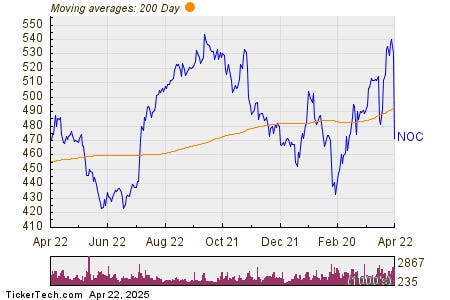As we wrap up tax season, I’m reminded of a mistake I’ve seen multiple people fall victim to: incorrect reporting of cost basis. Cost basis is the adjusted value of the security when you originally acquired it. Basically, it’s the money you’ve likely already paid taxes on.
Occasionally, when assets transfer from one institution to another, something might get lost in translation. When this happens, financial institutions often default to a cost basis of $0. Some investors may view this as a minor thing, but when the financial institution reports your sales of securities to the IRS, the entire amount would then be viewed as a capital gain. This is an explanation of how gains are calculated, and how to make sure everything is filed correctly when your institution doesn’t have the most up-to-date information.
How Capital Gains Are Calculated
When you sell a security, the gain is calculated as the sale price minus the cost basis. The cost basis is calculated based on the price of the security when you originally acquired it, then adjusted for stock splits and reinvestments.
Let’s say you worked at a large company for several years and received stock compensation over those years. The company increased in value, and you eventually transferred the stock to another institution and sold. Let’s say the total value of the stock when you received it as compensation was $150,000 and the current value is $300,000. During that transfer, one batch of the stock was improperly reported so the entirety of your transferred stock has a cost basis of $0 at the new institution.
This is how it will be reported to the IRS:
- Sale price: $300,000
- Cost basis: $0
- Capital gain: $300,000
This is the same as if you received stock from a settlement as well. I know someone who had a compensation dispute with a privately held company and they opted to settle that dispute with stock. This person paid taxes on the fair market value of the stock and when the company eventually did go public, the value was much lower than when the settlement was reached. The settled amount was worth $50,000 and the actual sale amount was $5,000. However, because the cost basis was not reported, this was reported to the IRS as a capital gain instead of the significant capital loss it was.
Capital losses are helpful to have because they can be used to reduce your taxable burden today and they can be carried forward to future tax years.
How To Correct Improper Reporting
If you filed an incorrect cost basis on your taxes, you’ll want to speak with your tax preparer immediately. They may end up recommending that you amend your return. You will also need to correct the issue with your financial institution. Since they report separately to the IRS, it’s not sufficient for you to just report the correct information on your own. You’ll need to process the cost basis adjustment with your financial institution and have them send out a corrected 1099.
If your stock was publicly traded from the start and you know your acquisition date, you can easily find price history data on Yahoo! Finance. If you’re unsure of what the cost basis should be, you may need to contact your prior institution, review prior statements, consult legal documents, or review old tax returns. In the instance of the settlement, the investor had to prove the value of the stocks at the settlement date, then adjust for later stock splits.
When You Need To File
If you have any sort of investment account with stocks, bonds, or even money market funds, you likely will need to file a 1099 relating to that account. If your bank accounts generate enough interest, you will also need to file a 1099 for those. If you sell any sort of assets, you will almost certainly need to report it. This includes stocks and bonds, but also the sale of things like collectibles.
The IRS Coming To Collect
The IRS has a long memory. If you make a mistake today, it could very well contact you five years from now to collect with interest and penalties. It’s critical to keep accurate records of your tax forms and filings from past years so you can understand and defend decisions from previous years.
Consult A Professional
If you have an accountant or enrolled agent, they can both prepare your taxes for you and represent you in front of the IRS if there are any issues with your return. Be sure to ask questions and thoroughly explain transactions to ensure reporting is done correctly.
Qualified financial professionals can also be supportive in issue-spotting before an institution goes on to report incorrect information. If a financial professional spots a cost basis of $0, they will bring it to your attention and even take the steps to correct the error on your behalf. They can also support with taxation strategies around your investments to save you money both now and in the future.
Conclusion
In conclusion, accurate reporting of cost basis is crucial to avoid unnecessary capital gains taxation. Misreporting can lead to significant financial repercussions, including penalties from the IRS. To prevent these issues, maintain detailed records, verify information with financial institutions, and consult with professionals. Proactive management of your investments ensures compliance and optimizes your financial outcomes.
This informational and educational article does not offer or constitute, and should not be relied upon as, tax or financial advice. Your unique needs, goals and circumstances require the individualized attention of your own tax and financial professionals whose advice and services will prevail over any information provided in this article. Equitable Advisors, LLC and its associates and affiliates do not provide tax or legal advice or services. Equitable Advisors, LLC (Equitable Financial Advisors in MI and TN) and its affiliates do not endorse, approve or make any representations as to the accuracy, completeness or appropriateness of any part of any content linked to from this article.
Cicely Jones (CA Insurance Lic. #: 0K81625) offers securities through Equitable Advisors, LLC (NY, NY 212-314-4600), member FINRA, SIPC (Equitable Financial Advisors in MI & TN) and offers annuity and insurance products through Equitable Network, LLC, which conducts business in California as Equitable Network Insurance Agency of California, LLC). Financial Professionals may transact business and/or respond to inquiries only in state(s) in which they are properly qualified. Any compensation that Ms. Jones may receive for the publication of this article is earned separate from, and entirely outside of her capacities with, Equitable Advisors, LLC and Equitable Network, LLC (Equitable Network Insurance Agency of California, LLC). AGE-7863755.1 (4/25)(exp. 4/29)
Read the full article here
















